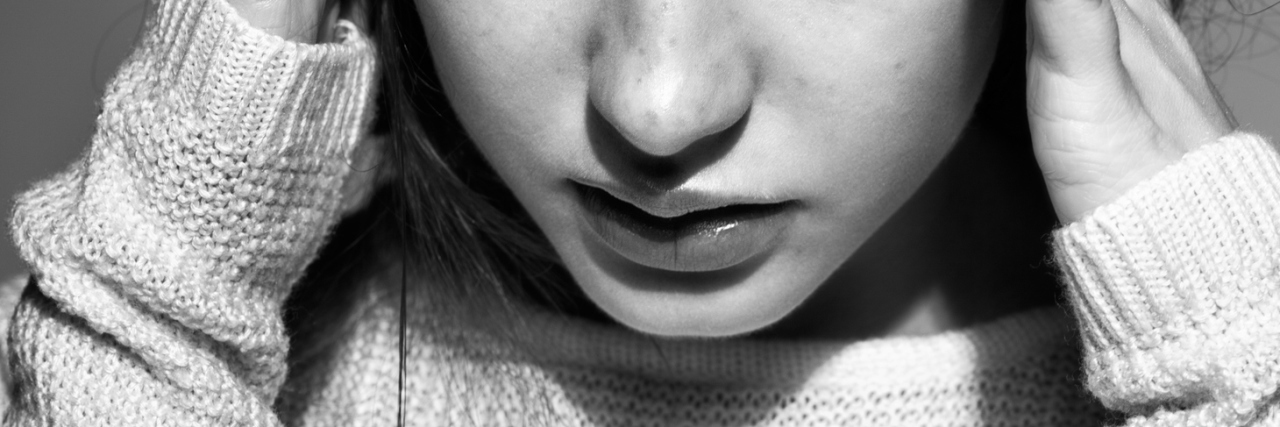3 Questions People Who Struggle With Self-Harm Don’t Want to Be Asked
Editor's Note
If you struggle with self-harm or experience suicidal thoughts, the following post could be potentially triggering. You can contact the Crisis Text Line by texting “START” to 741741. For a list of ways to cope with self-harm urges, visit this resource.
1. “Oh my god, are those scars on your arms? They better not be!”
I was asked this question by a family member, at a family event, in front of other family members. I was absolutely horrified, to say the least. Shamefully, I tucked my arm away (even though it was hardly in plain sight in the first place) and tried to quickly change the subject and ignore their question completely. My sisters tried to defend me, one of them quickly announcing, “They’re old, don’t worry about it.” (To be truthful, they were old wounds so I didn’t think they were that noticeable in the first place.) Their older sister chimed in saying, “OK, let’s not talk about this right now. Let’s just drop it.” The level of shame and embarrassment I felt from that question sent me into emotional distress for the remainder of the day and I ended up having to leave the family event completely. The situation would have been different if she had quietly pulled me aside and said, “Hey, I noticed your arm. Are you OK?” Or, she could’ve not said anything at all, which is preferable but sometimes unavoidable.
2. “Aren’t you hot in that sweatshirt?”
Now, I don’t expect everyone in the world to know that when someone is wearing a long sleeve shirt or a sweatshirt during 90-degree weather, they might just be struggling with self-harm. It’s just the absolute worst. My answer is always, “Oh, well, it was cold in the air conditioning and now I’m just too lazy to take it off,” even though I’m actually dying because it’s blazing hot outside but I don’t want to scare you away with my scars. The one time I decided to be brave and walk around in public without covering them up, I got some very strange and even some cold looks from people. So now you know. Please don’t ask that question.
3. “Why do you do that to yourself? Doesn’t it hurt?”
Alright. This one isn’t as bad as the previous two, but it’s still uncomfortable to answer! “Yes, Tim, sometimes it does hurt. But the pain feels good.” For those of you who do not know, self-harming is a coping technique people use to deal with extreme emotional distress. When someone inflicts pain onto themselves, the brain releases a rush of neurotransmitters called endorphins, which is just the fancy scientific word for happy or feel-good chemicals. Self-harming can have an extreme calming effect, even though it is difficult for many people to understand.
People who self-harm do not want to be called out about it or made to feel embarrassed or ashamed about it. If you notice someone is struggling with self-harm, the safest thing to do is to gently (and without judgment) ask if they’re OK, and then take it from there. And most importantly, avoid asking these three questions (as they seem to be the most common), and any other comments that may come off as insensitive or hurtful to the person struggling.
If you or someone you know needs help, visit our suicide prevention resources page.
If you struggle with self-harm and you need support right now, call the crisis hotline at 1-800-273-8255 or text “START” to 741741. For a list of ways to cope with self-harm urges, click here.
We want to hear your story. Become a Mighty contributor here.
Getty Images photo via Zastavkin

